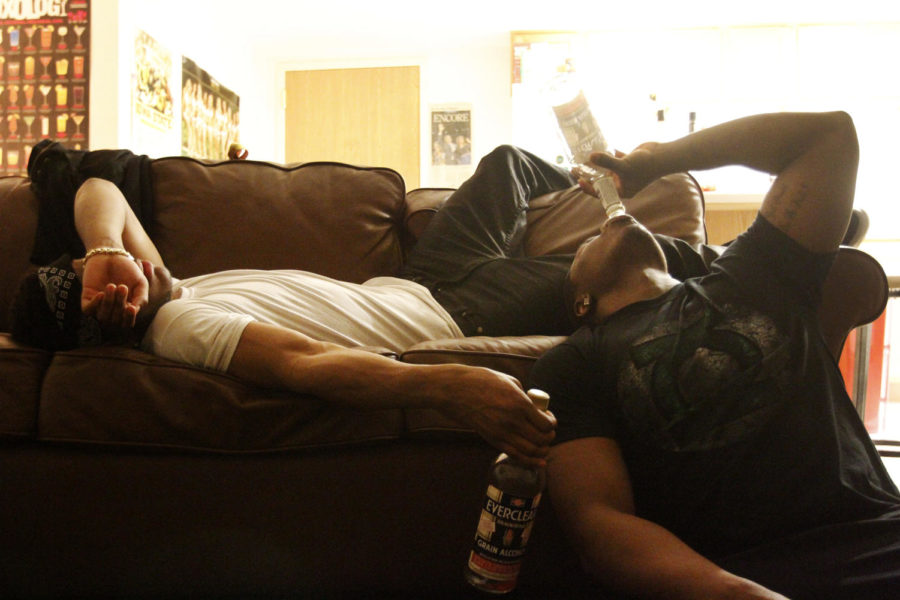Drinking and safety for Veishea
Photo Illustration: Suhaib Tawil
Alcohol poisoning is very serious and people should take it very seriously, especially during Veisha.
April 14, 2013
It’s Friday night after a long week at school; you’re at a party having a great time, when you notice one of your friends is passed out in the corner.
Thinking they have just had a little too much to drink, you yell at them to wake up.
After screaming their name and even shaking them to wake up, you feel your heart stop for a split second and stomach drop when there is no response. Something is really wrong.
Alcohol poisoning is a serious and sometimes fatal result of consuming too much alcohol in a short period of time.
Fortunately, there are signs you can look for and steps you can take to assist someone who has overdosed on alcohol.
Austin Henshaw, prevention services graduate assistant, knows those signs.
“If someone is passed out, they’re not just sleeping. You try to wake them up and they’re not responding,” Henshaw said. “[More signs are] slow, irregular breathing … less than eight breaths per minute … cold, clammy skin, discoloration of the face and shaking [body].”
“Very extreme examples are having seizures … and uncontrollable vomiting,” Henshaw said.
Once you suspect a person has alcohol poisoning, check their breathing and look for other signs.
If they have any of these signs you should immediately call 911, stay with the person and put them on their side to prevent them from choking on their own vomit, Henshaw explained.
There are also some misconceptions Henshaw said to avoid.
“Some things you shouldn’t do with a [extremely inebriated] person … is give them water or something to eat,” Henshaw said. “That’s probably not going to work because they will probably end up throwing it up anyway and could end up choking on it … giving them a shower won’t be effective at all because it could put them into shock.”
He does not suggest giving them coffee or letting them sleep it off.
Henshaw wants to emphasize that students should never be afraid to call the police for help.
“There is a medical amnesty policy … as long as you cooperate when the police arrive … they will excuse you at that point,” Henshaw said. “They wont get you in trouble if you are drinking underage or are intoxicated if you are calling to help somebody.”
There are ways to prevent yourself and your friends from being put in danger of alcohol poisoning.
“The number one date rape drug is going to be alcohol in itself,” Henshaw said.
“[One thing] people might do is make the drink stronger than a person was intended on [having].”
You can protect yourself from this by bringing your own drinks, keeping track of them or keeping your hand hovered over your cup.
Keeping track of what you drink is also a good precautionary practice, according to Kipp Van Dyke, program coordinator in the Dean of Students Office, who students meet with if they go to the hospital for alcohol overdose.
“[A good technique] is to put six pennies in your right pocket and as you have a drink, move one penny from one pocket to the other,” Van Dyke said.
You also should take into account how much you’ve eaten that day and drink plenty of water. Remember that one shot equals one drink and one mixed drink may have multiple shots, Van Dyke said.
“Most of the people who get in those situations, I find, are moderate drinkers who had a longer day and didn’t have a good meal, or tried something new they hadn’t had before,” Van Dyke said.
Van Dyke suggests if students are going to drink, they should learn how much they are able to drink and still be in a safe zone.
“Find what that buzz is and learn how to maintain it.”







